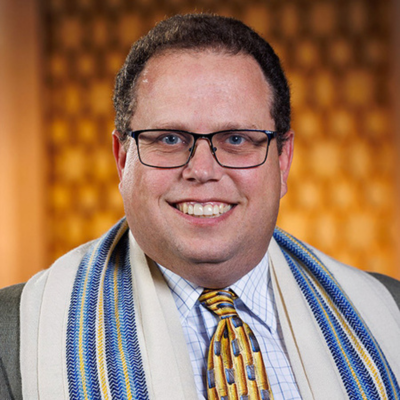In Parshat Vayechi, in the midst of blessing his sons, Jacob utters what seems to be a curse to his second and third sons, Simeon and Levi. Alluding to the wholesale slaughter of the town of Shechem for the terrible individual indiscretions of its prince, Jacob says to them, “Let not my person be included in their counsel, let not my being be counted in their assembly, for when angry they slay men.” (Genesis 49:6) As Ibn Ezra put it in the 12th century, Jacob wants no part of their schemes and does not want them associated with his name.
Yet despite these words of rebuke and curse, the two tribes descended from Simeon and Levi take very different directions. Levi is the tribe of Moses and Aaron, serving as the keepers of the Ark of the Covenant and the caretakers of the Temple in Jerusalem. Those descended from the tribe of Levi still have their own knowledge of tribal identity to this very day. Simeon, on the other hand, is barely mentioned after the time of Joshua and is eventually assimilated by the tribe of Judah.
So what is the difference between these two tribes that start with violence and are rebuked, if not condemned, for their wanton destruction? The only significant mention of Simeon in the wilderness involves a Simeonite, Zimri, being killed by Pinchas (a Levite) for the sin of Baal-Peor in Numbers 25. For Levi, however, we can see a redemption arc, a path away from violence to embracing peace, including when they stood by Moses’ side in the incident of the Golden Calf.
Find more commentaries on Vayechi.
As the tribe of Moses and Aaron, Levi takes on special leadership roles, and while there is backsliding (like Korah’s rebellion and the aforementioned violent reaction by Pinchas), they become faithful servants of God in the wilderness. Perhaps because of Levi’s violent past, they are excluded from war in order to take on their sacred duties. They are able to hear Jacob’s rebuke to Levi and take to heart the necessity of pursuing peace. Simeon does not and, as a result, eventually disappears from the narrative.
Today the choices in war and peace are extremely nuanced and complex as we look at our fellow Jews in Israel. There is no doubt that Hamas is a seemingly irredeemable Simeon, committed to terror with a goal of expanding violence. They will not hear or heed a rebuke. The Israeli government, however, has the chance to be a Levi, stepping back from a widespread violent response to extreme wrongs committed against Israel and figuring out how to pursue justice instead of vengeance. While I cannot support any solution that falls short of redeeming those still captive to Hamas, it is time for us — diaspora Jews and Israeli Jews alike — to ask questions of the Israeli government and to issue a loving rebuke. The current path is not working and only will result in more death and destruction. Peace earned through this path will be fragile and temporary at best.
Find more commentaries on Israel/Palestine.
We can be that modern day Jacob, saying to the Israeli government — and to the members of our own government who have the ear of Israeli leaders — that the course of wanton violence is a dead end. Such widespread destruction will not achieve the stated goals of this war, and in fact is likely detrimental to the stated goals of freeing the hostages and neutralizing Hamas.
The violence wrought by Simeon and Levi, for which Jacob rebukes them, was motivated by sheer revenge. Even as the anger motivating it was understandable, it ultimately solved nothing and caused potential problems in the future (see Genesis 35:5). So too, there are those in Israeli society, enabled and encouraged by (often Islamophobic) elements both within and outside of diaspora Judaism, who seek only revenge. They desire to continue on the path of Simeon, the path of continued violence that ended in the disappearance of the tribe.
Instead, by using our voices, we can try to rebuke — or bless — Israel to be a Levi, turning away from wanton violence in order to create an opening for peace. It would be easy to simply bomb Gaza until nothing is left standing, but then what? Peace is difficult. It requires understanding, listening, and a great deal of courage. May we have the courage to speak this truth to power, and may those in power have the courage to hear our message.
Rabbi Daniel Plotkin is Rabbi-Educator at Temple Isaiah in Fulton Maryland. Ordained in 2002 from HUC-JIR in Cincinnati, Rabbi Plotkin has served pulpits in Texas and Missouri before shifting to educational work and settling in Maryland. He lives in Pikesville with his wife Rachel, two teenage sons, and a crazy dog named Shushan.


